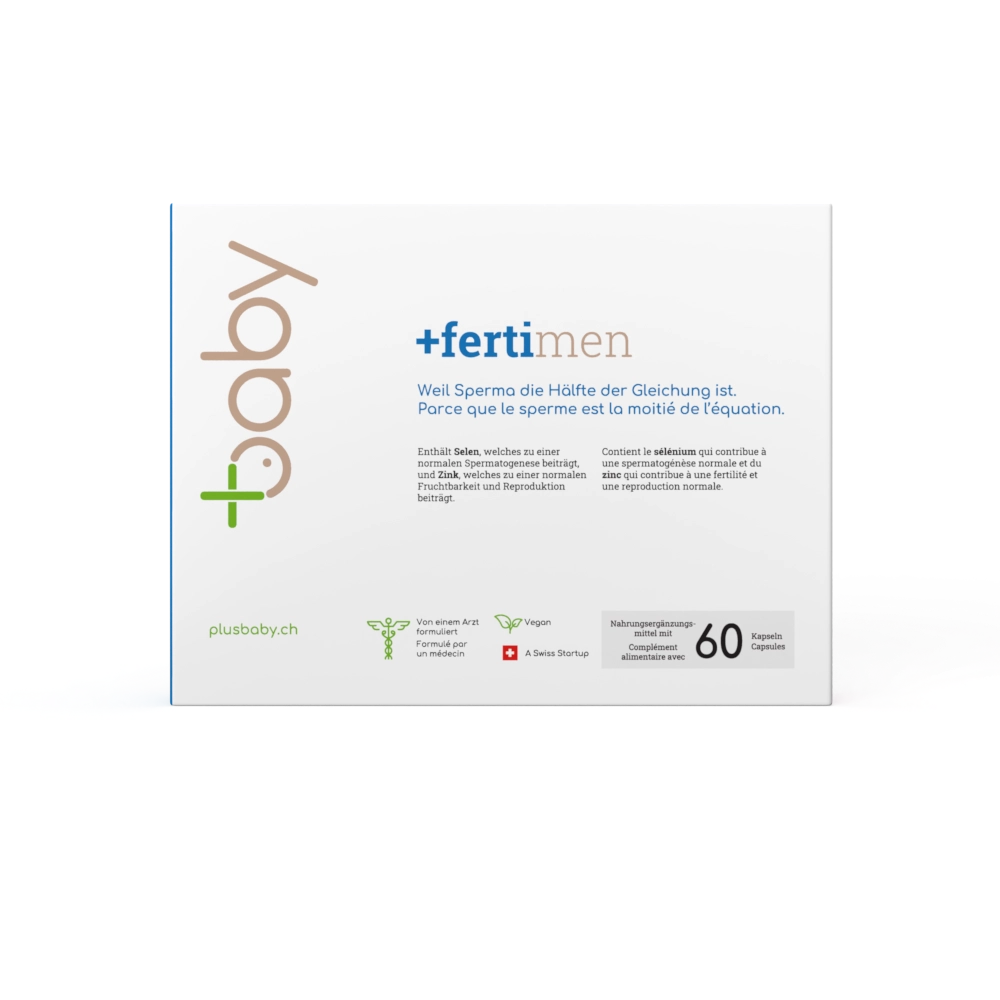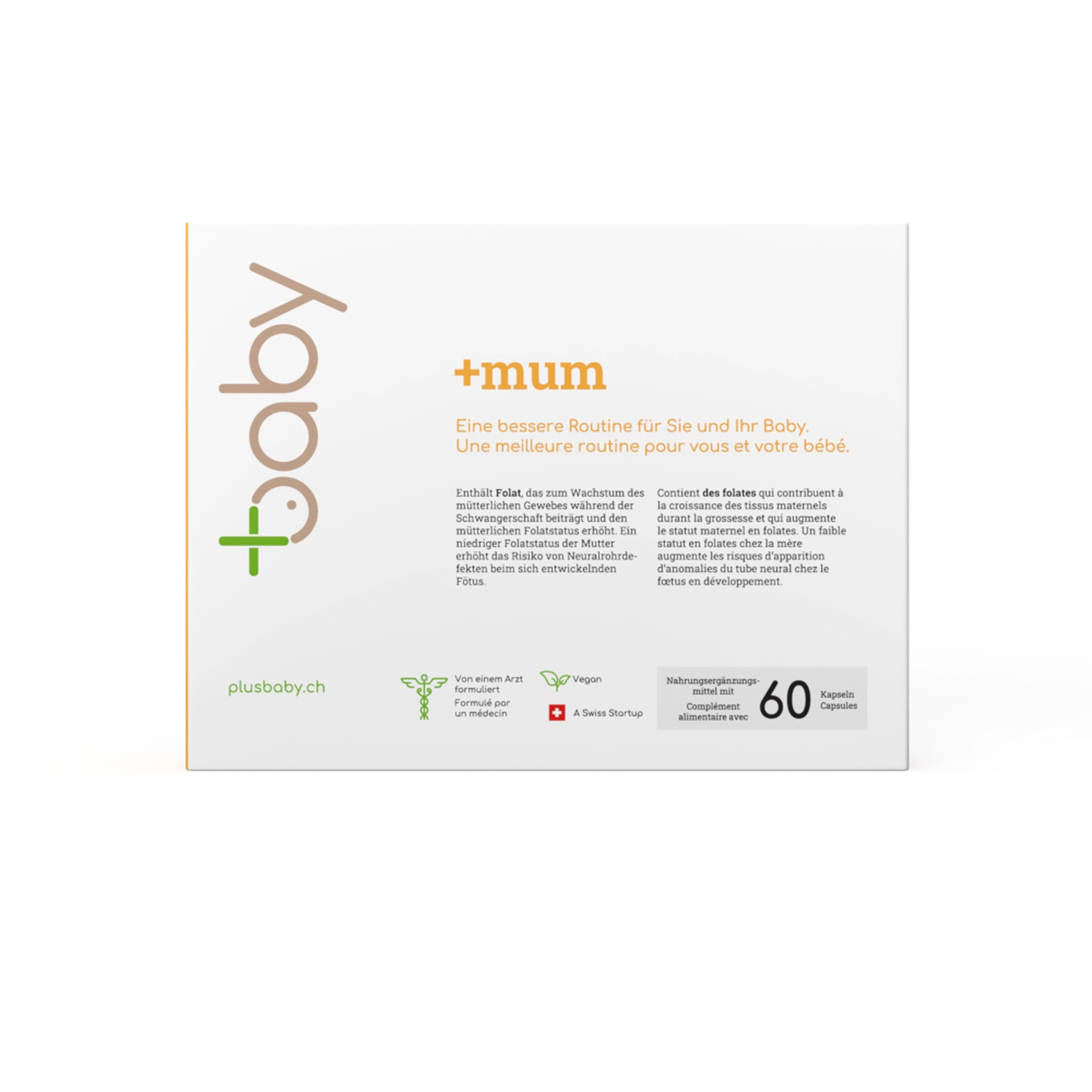Folic acid is essential at all stages of life, particularly during pregnancy when the neural tube closes in the newborn.
Vitamin B9, also commonly known as folic acid, is an essential vitamin with important implications for pregnancy. Vitamin B9 is involved in DNA and RNA synthesis, cell growth, the formation of red blood cells and the functioning of the nervous and immune systems. Folic acid is therefore essential at every stage of life, particularly during pregnancy when the neural tube closes in newborns. So it’s easy to understand why you shouldn’t be short of it, especially during these crucial periods of development.
Given its link with cell growth, it also plays a key role in the fertility and health of newborns and infants.
It’s important to understand that there are in fact two forms of vitamin B9: folates derived from food, and folic acid man-made (i.e. in synthetic form).
Unfortunately, folic acid in its synthetic form is not well assimilated by the body. We’ve found a solution for you: 5-MTHF folic acid.
What is folic acid?
Folic acid, or vitamin B9, exists in nature in different forms that make up the folate group. Humans are unable to synthesise them, and must obtain them from their diet and nutritional supplements. Some of the folates absorbed are methylated within the intestinal cell and reduced to methyl tetrahydrofolates (MTHF). The folic acid reaches the liver where it is converted into MTHF. It is then returned to the circulation and distributed to all tissues. Circulating folates are essentially made up of MTHF.
Therapeutically, 5-MTHF helps to reduce homocysteine levels, prevent neural tube defects and improve vascular endothelial function.
When should you start taking it?
A good prenatal vitamin should be one of the first purchases you make after deciding that you want to be pregnant. You can start as soon as you feel the desire for a baby and continue until the end of breast-feeding. Now, it’s important to understand that not all forms of folic acid contained in vitamins are equal.
There are 2 forms of folic acid. Folic acid made from synthetic folates, also commonly known as folic acid, and folate found naturally in food.
How do you choose a folic acid that is better assimilated?
Look for methylated folate rather than synthetic folic acid. Some labels state folate MTHF, methylfolate, 5-MTH, 5-5-methyltetrahydrofolatehas, L-5-MTHF, L-5-methyltetrahydrofolate, and 5-methyltetrahydrofolate, 5-MTHF. These are all the same type of folate. The importance of this vitamin and its role in the development of the baby’s neural tube are well documented. Of course, it also plays many other roles in the body.
What is methyl folate?
Methylfolate is the form of folic acid that is active in the body, in its natural form. This methylated form of folic acid is what is needed for the body to benefit from folates.
Unfortunately, up to 60% of the population has a genetic mutation that prevents folic acid from being converted correctly into this active form of methylfolate, which can lead to folate deficiency. This is why it is important that only methyfolate is present in your food supplements. For the sake of simplicity, we’ll call it folic acid 5-MTHF for the rest of this article.
5-MTHF folic acid reduces the risk of neural tube defects
It is now widely accepted that an adequate intake of dietary folate is an important factor in reducing a woman’s risk of giving birth to a child with a neural tube defect. Folic acid supplementation around the time of conception significantly reduces the occurrence of neural tube defects. Folic acid supplementation during pregnancy increases the child’s birth weight and improves Apgar scores (assessment of the newborn’s state of health), while reducing the incidence of foetal growth retardation and maternal infections.
Insufficiency and deficiency
Due to the high frequency of the MTHFR gene mutation, many women are folate deficient, with levels below recommendations. Folate deficiency can also develop as a result of a diet low in folate-containing foods, particularly dark green vegetables, citrus juices and foods.
In addition, folate deficiency can be difficult to detect because symptoms are generally non-specific, but include mouth sores, swollen tongue, fatigue and grey hair.
Does my prenatal vitamin contain enough 5-MTHF folic acid?
When choosing a prenatal vitamin, it is important to select one that contains the right type and quantity of folate. +mum and +fertiwomen +fertimen dietary supplements are made with 5-MTHF folic acid, the predominant form of folate found naturally in the body. Folate is recommended by doctors for all women of childbearing age to reduce the risk of spina bifida and other neural tube defects.
As it is difficult to obtain this amount of folic acid from food alone, women should take a daily prenatal vitamin containing at least 400 micrograms, starting at least one month before pregnancy and continuing during pregnancy for at least the first 12 weeks.
The Federal Office of Public Health (FOPH) specifically recommends that women wishing to bear a child take a folic acid supplement of at least 400 micrograms a day.
Our food supplements for pregnancy and fertility all contain at least 400 micrograms of 5-MTHF per daily dose.
If you’re planning to have a baby, we recommend our +fertimen & +fertiwomen supplements. Once your pregnancy is confirmed, you can change your supplements for +mum until the end of breast-feeding.
How do I know if I need more 5-MTHF?
Certain circumstances justify an increase in the amount of folate, in particular a history of miscarriage, a history of a child with a neural tube defect and people taking medication for epilepsy. Ask your obstetrician-gynaecologist if folate supplementation is indicated in your case.
Does it help to increase the chances of becoming pregnant?
As well as preventing congenital malformations and pregnancy loss, taking a daily multivitamin containing 5-MTHF before and during pregnancy can not only prevent congenital malformations, but also improve the chances of achieving and maintaining a pregnancy.
If a woman is undergoing IVF, doctors often recommend taking more than 800 micrograms of additional. This recommendation is based on a study suggesting a relationship between supplementation with certain micronutrients, including folic acid, and a greater chance of IVF success.
5-MTHF has many benefits
In a nutshell, it is a B vitamin that has numerous benefits for both mother and baby, including improved fertility results, reduced miscarriage rates and a reduction in congenital anomalies (mainly neural tube defects). Not all forms of folic acid are easily absorbed or used by the body, so it’s important to look for highly bioavailable methylfolate (5-MTHF), such as that found in Plusbaby pregnancy and fertility supplements.















